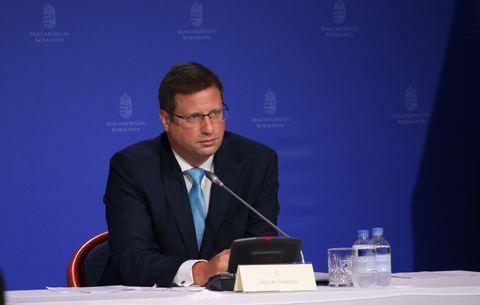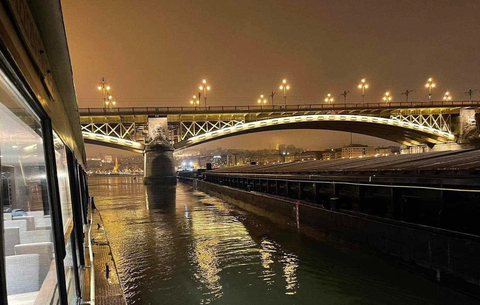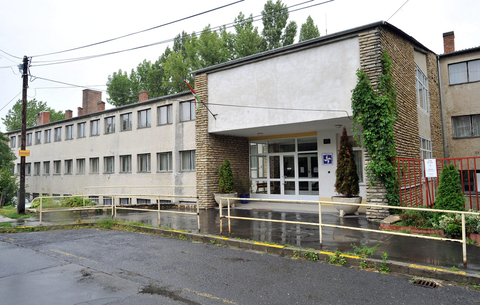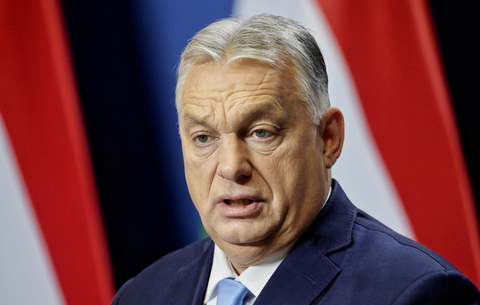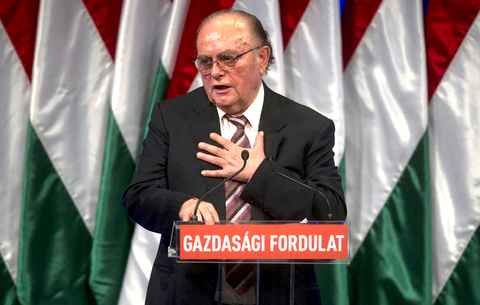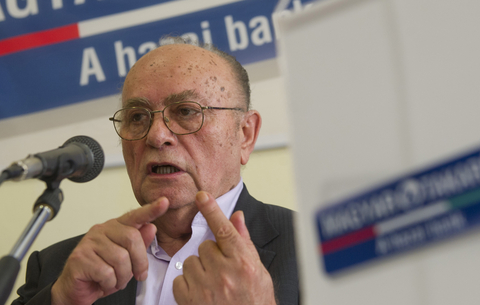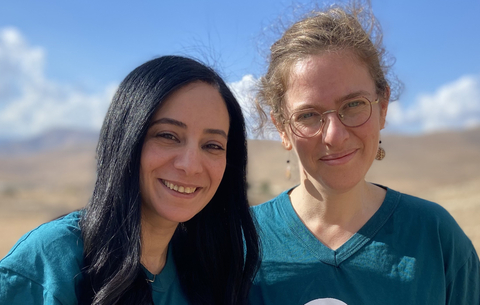Hunting the culprits
The public is as divided over the tragedy of 20 August as the politicians. The entire pyrotechnics and event organising industry should be the subject of a detailed enquiry. Within the profession, conspiracy theories are circulating.
The fireworks were to have been a farewell party for 60 Israeli
teenagers who had been sent away from the war zone to rest in a safe
and secure Hungary. When the wind rose and the clouds broke, they
began running, and their Hungarian guides noticed how deliberately
they behaved. They stayed in groups of four or five, before gathering
together once the wind had died down. Not one of them ran off, and
apart from one broken bone, nobody suffered a serious injury.
More than a week later, one of the questions that continues to
preoccupy the public is whether cancelling the event would have saved
lives or whether the resulting panic would have made the situation
even more serious. A survey conducted by Capital Research in Budapest
found that most blamed nature for the tragedy, with the disaster
protection agency in second place. They take the same position in
Median's national survey.
Laszlo Solyom, the president, also voiced criticisms last week. He had
not been briefed on the effects of the natural disaster and he was
dissastisfied with the enquiries held to establish who was
responsible. He did not explain why he did not offer refuge to people
escaping from the scene in his presidential palace.Fidesz referred to
Solyom's suggestion when the party called for a parliamentary
investigation into the affair.
With so little time before the local elections, the hunt for a culprit
could have major short-term implications - not just concerning who
might have issued the order to postpone the display and evacuate the
crowds, but also regarding the question of why the prime minister only
addressed the public the next day, 20 hours after the events in
question.
A further task is to understand how better to prepare for natural or
terrorist disasters. During the fireworks, it emerged that the
ambulance service is unable to meet its legal requirement of providing
one ambulance for every 50,000 people at a mass event if 1m people are
in attendance. Furthermore, it may be that over the coming decades,
country's big cities will have to be arranged so that tree-lined
avenues and parks are designed to withstand storms. The most serious
accident during the fireworks was caused by the fall of a chestnut
tree. Experts will have to decide if the state of the tree was a
factor in the tragedy.
The whole pyrotechnics and events industry should also be examined.
The profession is rife with conspiracy theories, but people suspect
the organisers of having links to the Socialists. Nexus Advertising
Agency was the organiser. It was founded in 1997 by Gabor Simon, who
continues to run the company, and Attila Horvath. Horvath had a
one-third-holding in the company until April 2004. His father is
Istvan Horvath, the deputy editor-in-chief of Nepszava. Istvan Horvath
for a while was joint owner of a company alongside Zoltan Gal, state
secretary in the Prime MInister's Office, and Ferenc Gyurcsany
himself. Another company, Szin-lap, was also subcontracted to run the
events. This company was founed by Laszlo Hamori, who is a local
councillor in the 13th district. In 2002, he ran events in the
Socialist Party's national headquarters before heading up Istvan
Hiller's office.
As regards the pyrotechnics company, one of the strongest players in
the sector, Pyro-Technik Kft, was driven out of the Hungarian market
by a warehouse explosion in Torokbalint two years ago. The case is
still before the courts. The owners of this company originally
believed that the explosion was not an accident but an intentional
murder carried out in their warehouse. Robert Kiss, an army explosives
expert, supported this theory. He was killed this summer during a
training exercise, when a mis-secured granade exploded in his
vicinity. Military prosecutors suspended an investigation into his
death, saying there was no evidence of foulplay.
Originally, one of Pyro-Technik's owners was Istvan Gecse, who might
be described as the industry's eminence grise. He was not on good
terms with Pyro-Technik when he left, and he was followed by several
of company's employees, including Lorant Losonczi. Losonczi and Gecse
together set up Absolut Pyro Kft, which won the contract to run this
year's fireworks, but Gecse is also the principle owner of Crescom.
This company organised the fireworks in 2003 - which is remembered for
a car exploding and for trees on Gellert Hill bursting into flame -
though nobody was injured on that occasion - as well as an explosion
in a warehouse in Balatonfuzfo this June, in which four people were
killed. Whether these were just unavoidable accidents or whether all
this is just a sequence of unproven conspiracy theories, there is no
question that the fireworks industry has claimed enough lives in the
past few years without the most recent tragedy.
GERGELY FAHIDI, ANETT SIPOS
teenagers who had been sent away from the war zone to rest in a safe
and secure Hungary. When the wind rose and the clouds broke, they
began running, and their Hungarian guides noticed how deliberately
they behaved. They stayed in groups of four or five, before gathering
together once the wind had died down. Not one of them ran off, and
apart from one broken bone, nobody suffered a serious injury.
More than a week later, one of the questions that continues to
preoccupy the public is whether cancelling the event would have saved
lives or whether the resulting panic would have made the situation
even more serious. A survey conducted by Capital Research in Budapest
found that most blamed nature for the tragedy, with the disaster
protection agency in second place. They take the same position in
Median's national survey.
Laszlo Solyom, the president, also voiced criticisms last week. He had
not been briefed on the effects of the natural disaster and he was
dissastisfied with the enquiries held to establish who was
responsible. He did not explain why he did not offer refuge to people
escaping from the scene in his presidential palace.Fidesz referred to
Solyom's suggestion when the party called for a parliamentary
investigation into the affair.
With so little time before the local elections, the hunt for a culprit
could have major short-term implications - not just concerning who
might have issued the order to postpone the display and evacuate the
crowds, but also regarding the question of why the prime minister only
addressed the public the next day, 20 hours after the events in
question.
A further task is to understand how better to prepare for natural or
terrorist disasters. During the fireworks, it emerged that the
ambulance service is unable to meet its legal requirement of providing
one ambulance for every 50,000 people at a mass event if 1m people are
in attendance. Furthermore, it may be that over the coming decades,
country's big cities will have to be arranged so that tree-lined
avenues and parks are designed to withstand storms. The most serious
accident during the fireworks was caused by the fall of a chestnut
tree. Experts will have to decide if the state of the tree was a
factor in the tragedy.
The whole pyrotechnics and events industry should also be examined.
The profession is rife with conspiracy theories, but people suspect
the organisers of having links to the Socialists. Nexus Advertising
Agency was the organiser. It was founded in 1997 by Gabor Simon, who
continues to run the company, and Attila Horvath. Horvath had a
one-third-holding in the company until April 2004. His father is
Istvan Horvath, the deputy editor-in-chief of Nepszava. Istvan Horvath
for a while was joint owner of a company alongside Zoltan Gal, state
secretary in the Prime MInister's Office, and Ferenc Gyurcsany
himself. Another company, Szin-lap, was also subcontracted to run the
events. This company was founed by Laszlo Hamori, who is a local
councillor in the 13th district. In 2002, he ran events in the
Socialist Party's national headquarters before heading up Istvan
Hiller's office.
As regards the pyrotechnics company, one of the strongest players in
the sector, Pyro-Technik Kft, was driven out of the Hungarian market
by a warehouse explosion in Torokbalint two years ago. The case is
still before the courts. The owners of this company originally
believed that the explosion was not an accident but an intentional
murder carried out in their warehouse. Robert Kiss, an army explosives
expert, supported this theory. He was killed this summer during a
training exercise, when a mis-secured granade exploded in his
vicinity. Military prosecutors suspended an investigation into his
death, saying there was no evidence of foulplay.
Originally, one of Pyro-Technik's owners was Istvan Gecse, who might
be described as the industry's eminence grise. He was not on good
terms with Pyro-Technik when he left, and he was followed by several
of company's employees, including Lorant Losonczi. Losonczi and Gecse
together set up Absolut Pyro Kft, which won the contract to run this
year's fireworks, but Gecse is also the principle owner of Crescom.
This company organised the fireworks in 2003 - which is remembered for
a car exploding and for trees on Gellert Hill bursting into flame -
though nobody was injured on that occasion - as well as an explosion
in a warehouse in Balatonfuzfo this June, in which four people were
killed. Whether these were just unavoidable accidents or whether all
this is just a sequence of unproven conspiracy theories, there is no
question that the fireworks industry has claimed enough lives in the
past few years without the most recent tragedy.
GERGELY FAHIDI, ANETT SIPOS
English version
hvg.hu
2006. augusztus. 31. 10:44
Lack of money and commitment from officials
English version
HVG
2006. augusztus. 30. 14:40
Budapest on Budapest
English version
hvg.hu
2006. augusztus. 21. 13:55
Storm in Budapest
English version
hvg.hu
2006. augusztus. 21. 10:35
Grass and Istvan Szabo
English version
hvg.hu
2006. augusztus. 23. 19:15
Changing figures
English version
HVG
2006. augusztus. 31. 10:42
Laszlo Lengyel
English version
hvg.hu
2006. augusztus. 31. 10:30

